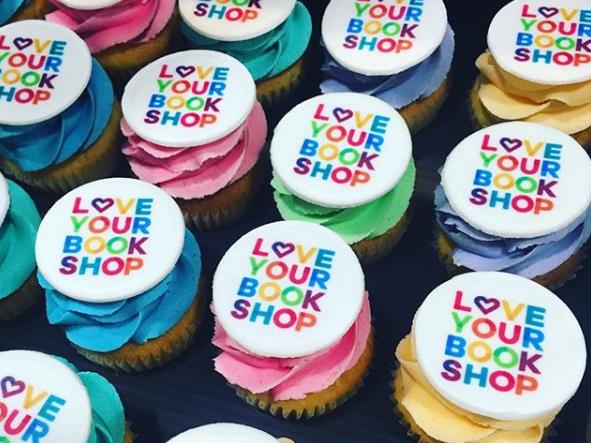Love Your Bookshop Day celebrations at Better Read Than Dead bookstore in Newtown, NSW. Image supplied.
A curious thing occurs when people buy books in bookstores. As part of a Masters research project, I found that both customer and bookseller believe they are engaged in a relatively equal exchange of information. What they are doing registers as non-transactional, which I knew intuitively from a lifetime of bookselling and is borne out in the research.
If you’re a reader, you tend to find your bookshop and form a relationship with the booksellers there. You become attached to the physical space and start to feel proprietary about it. Booksellers are trusted to understand and serve the needs of people who have access to every product in the world and the good ones don’t let their customers down.

ABA CEO Robbie Egan. Image supplied.
Bookshops are the most democratic places too, with something on their shelves for almost everyone. In 25 years I barely met a person I could not recommend a book to. On those occasions, I sought the wisdom of a colleague to help me out, and often another customer would intervene with solutions of their own!
Bookshops are facilitators of cultural consumption where cultural value serves the commercial imperative in what I call ‘soft capitalism’. They are labour and capital intensive, so the realities of small business are always present. But the reality for those of us who find our wagons hitched to this star is that we own or work in bookshops because we love doing it. Bookshops provided me with an amazing career, and my current role as CEO of the Australian Booksellers Association is a natural extension. I hope I can now help to ensure others have the same opportunities and that bookstores can continue to play their integral role in the creative ecosystem.
High profile and award-winning writers such as Benjamin Law and AS Patrick have worked in and still work in bookshops. My old colleague Nina Kenwood has just had her first book published. Average incomes for writers are a paltry $12,000 per annum, so bookshops are both a vital conduit to income for writers and illustrators and places where many find a career that can support and compliment their creative endeavours.
Writers talk about how bookshops give them their ‘fix’ and ‘always know what they want’. Video supplied.
Bookshops occupy a unique place in the retail landscape where art and commerce intersect in support of a supply chain that nurtures numerous creative inputs. Authors, illustrators, editors, designers and publicists are all part of this quixotic mix of business big and small, and the final link in the chain is the bookshops and booksellers who place the end result in readers’ hands. They support local communities as ratepayers and leaseholders and providers of meaningful employment.
But they do so much more as holders of cultural value and the dreams and aspirations of story tellers. We are a narrative species and we tell stories to understand our world and our existence and bookshops help shape and create this ecosystem.
The most comprehensive medium for carrying complex narratives is the book, and the bookshop remains the ultimate place for discovering them. Another curious thing I unearthed in my research is that most people enter a bookshop without a purchase in mind. They simply want to browse, as bookshops are fun places. Let a kid loose in one if you don’t believe me.
Bookshops were one of the first retailers to bring product out from behind the counter for customers to view and handle. Publishers dedicate a lot of resources to book covers and bookshops are incredible examples of contemporary consumption, offering visual and audio cues alongside public events programs. They serve to create order out of the chaos of mass publishing and are both rich in sensory detail yet intimate and calming spaces.
Ultimately, bookshops are much more than a retail space filled with products – they are community spaces that connect people, support culture and creativity, and invite discovery.
Robbie Egan is the CEO of the Australian Booksellers Association whose annual celebration Love Your Bookshop Day is this Saturday, 10 August 2019. Check out the full program to find out what’s happening at your local bookshop.





